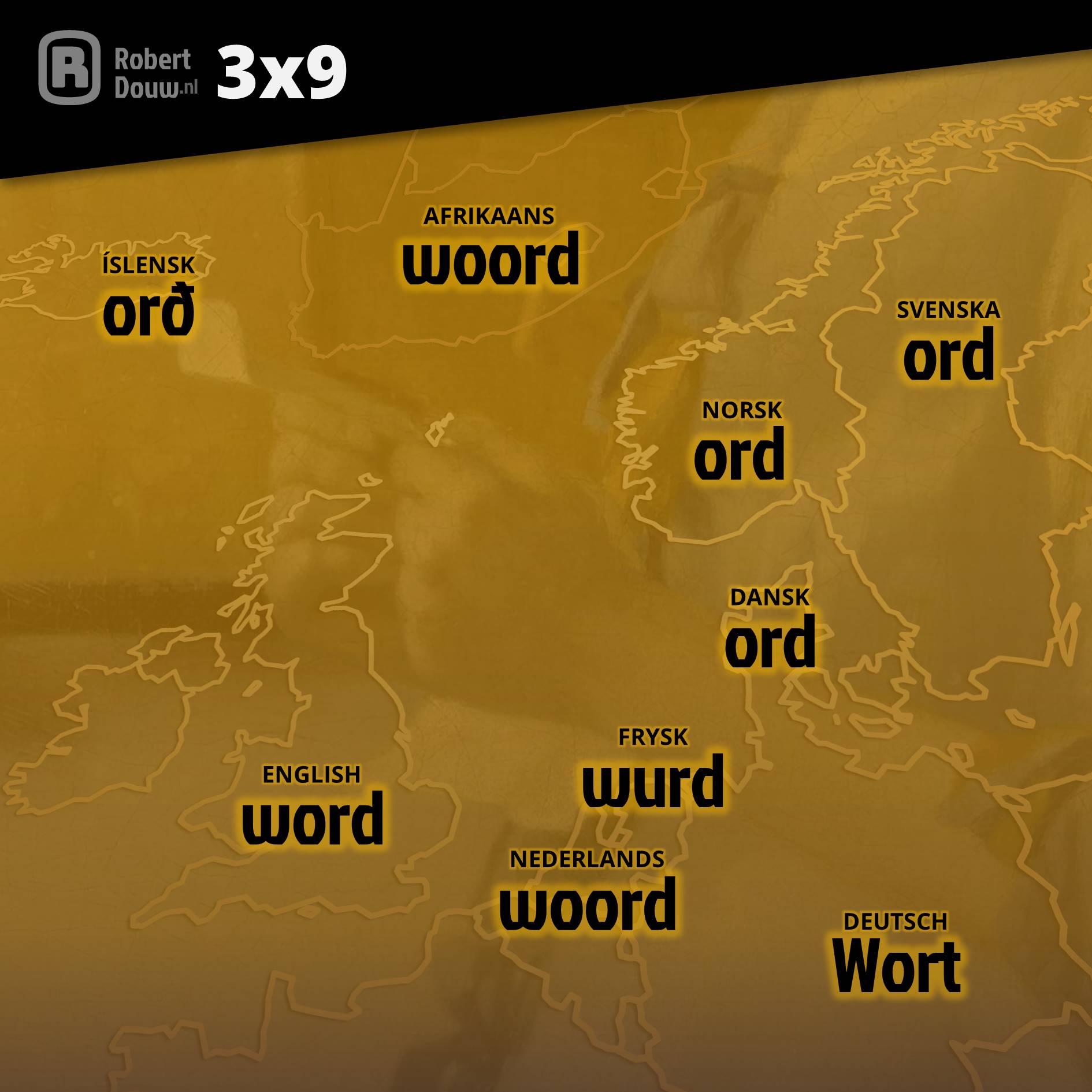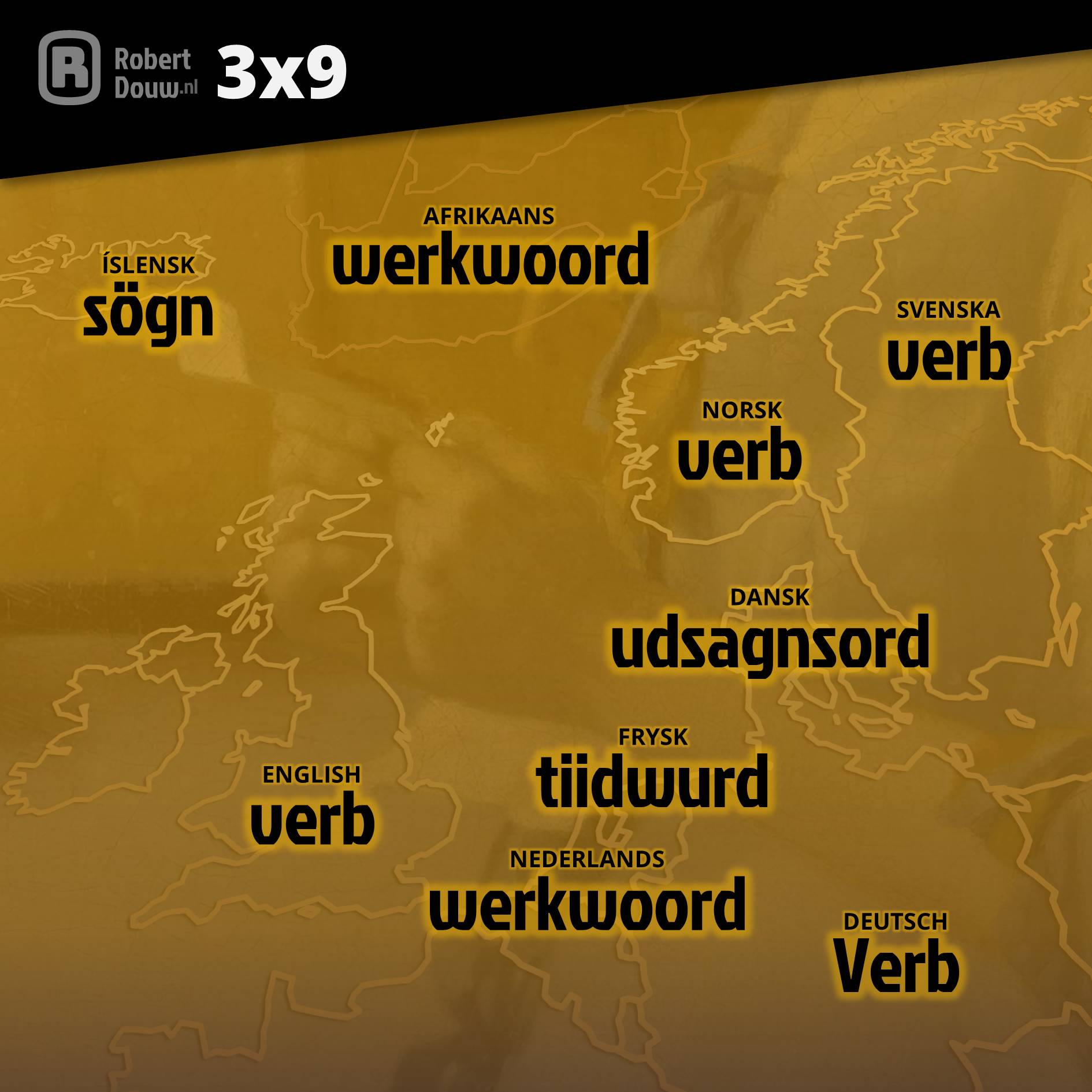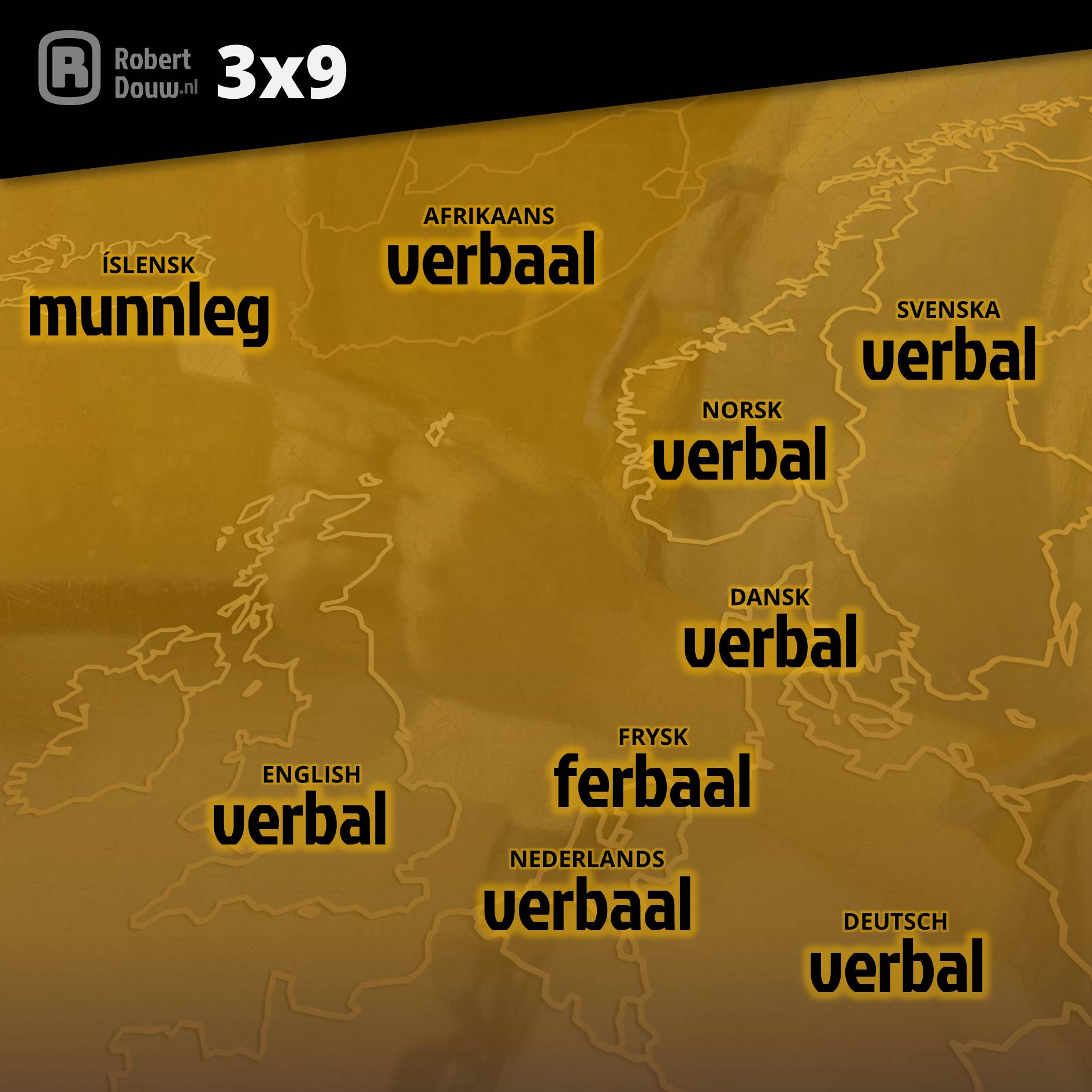THREE TIMES NINE
word, verb, verbal
Linguistics
| 27-02-2022
In our world full of books, newspapers and other written texts, when we think of the word word, we soon think of a number of letters that together have a meaning. However, man has been talking much longer than man has been writing. Originally, the word word – or rather its distant Proto-Indo-European predecessor, something like uerd(h)o – referred to a spoken utterance.
The text continues below the images.
verbum
In the Germanic languages, the words for word all look quite alike, but there are also related words outside of the Germanic. The most interesting of these I find Latin verbum. In Latin, verbum has meanings such as "word", "expression" and "oration". In linguistics, verbum is used to indicate a verb, and many languages use the word verb that is derived from it. Some languages have chosen a different path there: a name that more describes the function of that part of speech.
storyword
The Icelandic word sögn has its origins in Old Norse sǫgn, which means, among other things, "speech", "story" and "report". A verb gives information about what the subject of the sentence is doing or what happens to it and thus tells a story in a sense – I can imagine that being the thought behind it, but that's my interpretation. The Danish word udsagnsord is said to be a loan translation of German Aussagewort, which literally would mean 'statement word'.
timeword
What I do know for sure is that Frisian tiidwurd, like Zeitwort, the German synonym for Verb, is a translation of the Latin term verbum temporale, literally "word by which the times are distinguished". And Dutch werkwoord is called that because it is a word that indicates a ‘werking’ ("action"), something someone does, or that happens. All these words have been devised to distinguish it from the more general word, or verbum generale.
verbal
Some languages may have their own words for verbum, but the Latin word has left its mark, for in almost all Germanic languages the derivative verbal is used as a synonym for oral - the original way words were used.
In the Germanic languages, the words for word all look quite alike, but there are also related words outside of the Germanic. The most interesting of these I find Latin verbum. In Latin, verbum has meanings such as "word", "expression" and "oration". In linguistics, verbum is used to indicate a verb, and many languages use the word verb that is derived from it. Some languages have chosen a different path there: a name that more describes the function of that part of speech.
storyword
The Icelandic word sögn has its origins in Old Norse sǫgn, which means, among other things, "speech", "story" and "report". A verb gives information about what the subject of the sentence is doing or what happens to it and thus tells a story in a sense – I can imagine that being the thought behind it, but that's my interpretation. The Danish word udsagnsord is said to be a loan translation of German Aussagewort, which literally would mean 'statement word'.
timeword
What I do know for sure is that Frisian tiidwurd, like Zeitwort, the German synonym for Verb, is a translation of the Latin term verbum temporale, literally "word by which the times are distinguished". And Dutch werkwoord is called that because it is a word that indicates a ‘werking’ ("action"), something someone does, or that happens. All these words have been devised to distinguish it from the more general word, or verbum generale.
verbal
Some languages may have their own words for verbum, but the Latin word has left its mark, for in almost all Germanic languages the derivative verbal is used as a synonym for oral - the original way words were used.

THREE TIMES NINE
ocean, sea, lake

POETRY ON DAY THREE
Lost for words
LINGUISTICS
Click here for an overview of everything in the Linguistics section.



